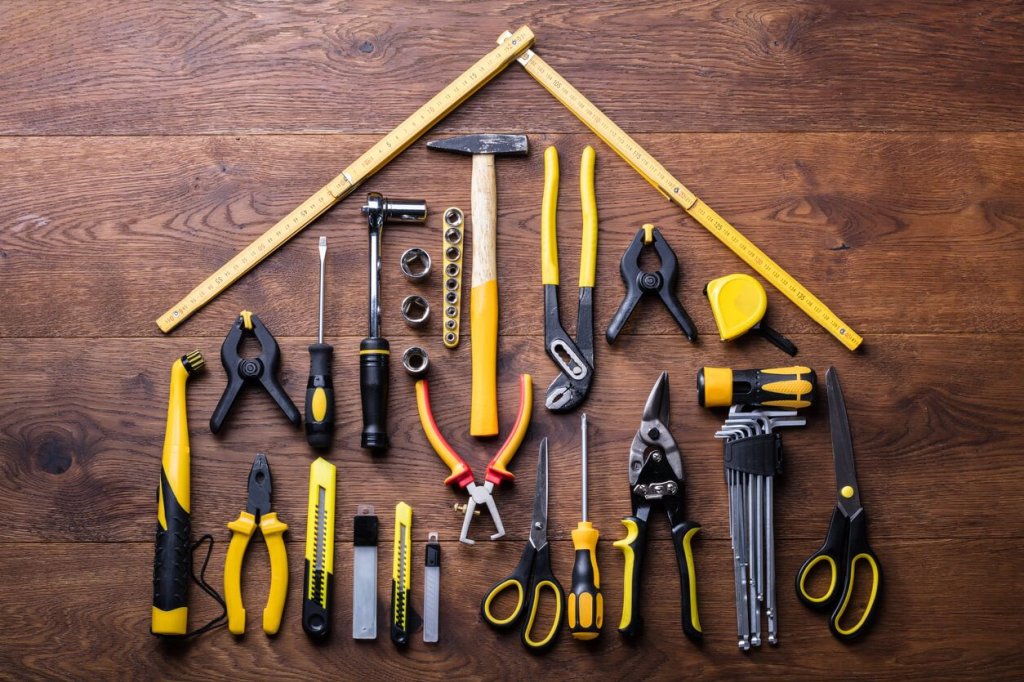Hand Tools Safety Talk
Hand tools are a type of equipment found on construction sites of all kinds. But, just because they are common doesn't mean hand tools aren't potentially dangerous. Some of the most simple and straightforward hand tools can cause harm when used incorrectly. Often, hand injuries and other accidents occur due to improper use or neglect.
It is important to make sure hand tools are inspected regularly for repairs, malfunctions, or any other problems. In this toolbox talk, we'll review all the basic hand tools that may be used in construction, how to inspect them, and best safety practices.
Common hand tools
Some of the most commonly used hand tools in construction include:
Hammers
Chisels
Wrenches
Screwdrivers
Hand tool inspections
Regular hand tool inspections are recommended to prevent unnecessary injuries and accidents on the jobsite. If you notice a tool is malfunctioning in some way or is broken, it should be properly documented and communicated with the rest of your crew. That way no one else will try to use the hand tool and get hurt accidentally.
Here are some points to keep in mind when inspecting particular hand tools.
Screwdriver
It may seem like it's impossible to get hurt by a screwdriver, however there have been many instances of workers being injured while using this tool. The most common ways for injuries to occur are when screwdrivers are being used improperly or not for their intended use.
Some things to check for:
Is the handle hipped?
is the handle broken or damaged?
Is the head damaged?
Is the head is worn down?
If you can answer "yes" to any of these questions, you should replace your screwdriver with a new one immediately.
Chisel
Like any tool, over time chisels begin to break down and wear out from repetitive use. A common problem with chisels is that it they begin to "mushroom," or become so deformed with use that the head spreads and resembles a mushroom.
It is important to stop using the chisel at that point and repair it before resuming your task. If you cannot repair the chisel, you should replace it.
Wrench
When you are using a wrench, you need it to properly hold on to the bolt that you are tightening so it does not slip and cause you to hurt yourself or do damage to the material you are working on.
You can properly inspect the wrench and check for damage or malfunctions before use to prevent this from happening.
Make sure it isn’t bent
Check for chips
Check for broken parts
Replace it when it is worn out
Hammer
Hammers are probably one of the most commonly used tools at work and at home. It is important to always inspect your hammer before you begin hammering to avoid accidents.
Some things that you should check on your hammer are:
Make sure the handle isn’t chipped, broken, or loose
Never use a hammer that has been taped back together
Check that the claw of the hammer is in tact
If any of these things are wrong with your hammer, it is best to replace the hammer to be safe.

Best safety practices for hand tools
It is important to know hand tools best safety practices if you're going to use them regularly. Having a general idea of the safest way to use them, when to throw them out, and how they are supposed to be used is vital to your safety.
Here are some of the best practices to remember when you are working with hand tools:
Use the tools as they are intended to be used. Never make modifications to use them for other purposes than originally designed for.
Always keep your tools clean. When your tools are dirty, you are at greater risk of injury or damages.
Have designated and proper storage available for all tools. Maintaining a clean, clear workspace can prevent injuries and help you avoid having your hand tools get lost, stolen, or damaged.
First aid certifications
When you work in construction, a field where workers are at greater risk of getting hurt and needing emergency medical attention, it is beneficial to be first aid certified.
Obtaining first aid certification is usually a fairly simple process, with a course that can be completed in one afternoon. You will learn simple techniques for helping an injured person until emergency personnel arrives and can take over.
Some of these techniques are:
How to help stop bleeding
What to do when someone is in shock
How to help someone who passed out
How to perform CPR
What to do when someone is unresponsive
How to help when someone is choking
How to help with a burn
What to do if someone is poisoned
How to use an epipen
You should also know who to call when an emergency situation arises. If the injured person needs medical attention, emergency services should be called immediately. Then, you will need to inform a manager or supervisor. Understanding your company policy is important.
Finally, the location of any AED and first aid kit onsite should be clearly communicated to all workers.
Find and schedule topics faster
Raken's toolbox talk app makes it easy to choose from a pre-loaded library (or upload your own), then schedule and assign topics for any project. We'd love to show you how in a demo and get you started on a free trial.